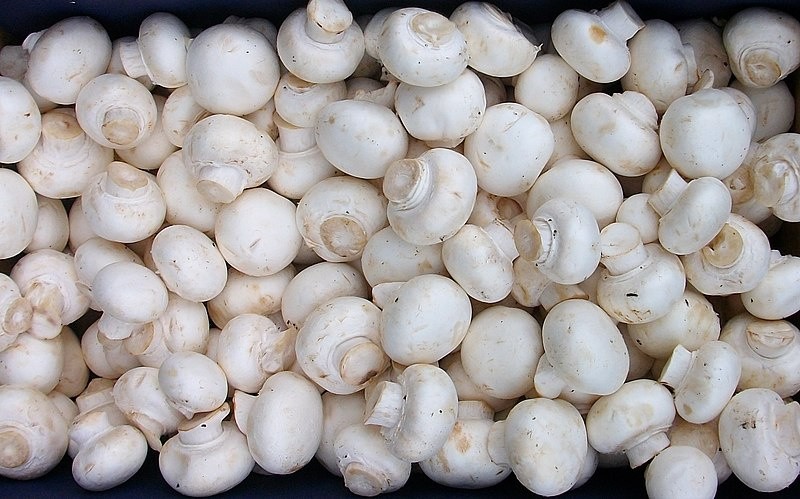Nanyang Technological University scientists in Singapore have created a method for growing a fungi-based protein food product that may replace plant-based protein as a healthier, better-tasting, and more environmentally friendly option that has a lower carbon footprint.
The food product is grown using fungi that are fed nutrient-rich known food waste, which provides the fungi with additional essential nutrients like iron, protein, and amino acids. This makes them more nutrient-dense than components like peas, wheat gluten, chickpeas, and soy which are frequently found in plant-based meat substitutes.
The production of the food item created by NTU would also present a chance to recycle common food waste and byproducts of agriculture, the food and beverage industry, and the brewing industry, such as wheat stalk, soybean skin, and brewers' spent grain.

Around 14 million tons of soy skin, also known as okara, and about 39 million tons of expended grains are reportedly dumped into landfills each year throughout the world, where they decompose and increase greenhouse gas emissions.
The study demonstrates NTU's dedication to reducing food production impact on the environment, one of the four grand challenges facing humanity that the University aims to tackle through the NTU 2025 strategic plan. It also introduces an innovation that could reduce waste.
Fungi Cultivation
Having led the development of the food product, Professor William Chen, Director of NTU's Food Science and Technology (FST) program, said that their fungi-based protein and the food product are another victories for NTU as they search for effective ways to find creative uses for products that would otherwise be thrown away. In addition to improving the efficiency of food supply chain processing, upcycling these products to grow fungi, a food source well-known to Asian consumers, could encourage the use of a healthier non-animal protein substitute to supplement diets.
The FOODBOWL, a nationwide network of freely accessible food processing facilities backed by the New Zealand government, is working with the NTU team, which also includes Ph.D. student Mrs. Malsha Samarasiri at NTU's FST program, to scale up the group's fungi-cultivation method. The FOODBOWL helps food businesses and startups around the world innovate, scale up, and commercialize new products-ultimately to an international scale.
Grant Verry, Chief Executive of The FOODBOWL, expressed his company's excitement about being able to support international innovation by using regional waste streams to create more nutrient-rich alternative proteins. This project is yet another excellent illustration of the value that strong collaborative agreements between New Zealand and Singapore can bring to both countries' economies. It will also enhance the overall food systems for both countries, with government-enabled and industry-led innovation meant for the food sector.
Off-Piste Provisions, another plant-based meat company, is one New Zealand startup working with NTU's FST program to incorporate fungi cultivation technology through its food products.
Off-Piste Provisions' CEO, Jade Gray, stated that the company is seeking partnerships with esteemed food scientists, like Prof. William Chen of NTU, to help address the challenge of imitating the flavor, texture, and protein punch of animal products that startups that work on alternative protein like the face. Their team is confident that by working with Prof. Chen at NTU, they can create a variety of fungi-based meat products in New Zealand that will appeal to even the most ardent carnivores, satisfy health-conscious consumers, and supply the protein needed for each person's daily adventure.
White Mushroom
Plant-based protein startups in the Asia Pacific region received $220 million in funding in 2021, from which a sizable portion went to research and development to improve the texture and flavor of their products to more closely resemble that of meat, as studies have suggested that those two factors would aid in the acceptance of plant-based protein by mainstream consumers.
The food item created by NTU, which is based on the edible white mushroom (Agaricus bisporus), would therefore also address several criticisms of plant-based protein, including the fact that they are frequently highly processed, require flavoring to make them taste good, and sometimes lack important nutrients like iron and amino acids.
Since the fungi-based protein and food product already resembles meat over other plant-based proteins and shreds like cooked chicken would, it could stand to be more readily accepted by consumers.
Additionally, because it has higher levels of amino acids, aspartic and glutamic acids-compounds that frequently occur in animals and give their flesh that distinctively "meaty" flavor-it also tastes more like meat.
The close ties they have to the industry, according to Chen, drive them to apply our discoveries to pressure points faced by modern food and beverage producers, such as enhancing the flavor, nutritional value, and sustainability of their offerings. Fungi are a powerful resource provided by nature that can assist businesses in reducing waste and possibly improving human diets. To close this gap, however, requires research as well as innovation, which the team is happy to provide.
The researchers at NTU's FST program want to develop their protein product to further improve its nutritional profile and decrease food waste, in addition to serving as advisors to startups. By 2024, they also want to commercialize their solution, Technology Networks reports.
Related article : Plant-Based Diet Curbs Food Production Emissions
© 2025 NatureWorldNews.com All rights reserved. Do not reproduce without permission.





